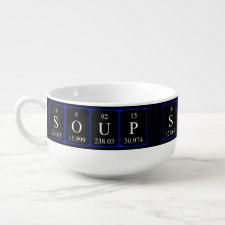
Authors: Wang CY, Chen YC, Sheu DC, Chou TC
Article Title: Molecularly imprinted polymers for the recognition of sodium dodecyl sulfate denatured creatine kinase.
Publication date: 2012
Journal: Journal of the Taiwan Institute of Chemical Engineers
Volume: 43
Issue: (2)
Page numbers: 188-194.
DOI: 10.1016/j.jtice.2011.10.001
Alternative URL: http://www.sciencedirect.com/science/article/pii/S1876107011001350
Abstract: Micro-contact imprinting methodology was used to prepare the molecule recognition film for denatured creatine kinase-MM (CK-MM), which was denatured by sodium dodecyl sulfate. Interpretation of thermo-calorimetry measurements suggested the use of poly(ethylene glycol) 400 dimethacrylate (PEG400DMA) as a crosslinking molecule. The selected functional monomer, methyl methacrylate (MMA), produced the highest imprinting factor from a panel of five candidates. The molecularly imprinted polymers (MIPs) formed with 5% MMA, 95% PEG400DMA and denatured CK-MM showed excellent imprint recognition, with the imprinting factor of 8.66. The dissociation constant calculated from Scatchard plot was 3.25 x 10-8 M. MIPs had little affinity with non-template proteins, such as native CK-MM, a native and denatured form of human serum albumin (HSA) and immunoglobulin G (IgG). The competitive study in a two-protein environment showed that the selectivity of MIP was 96.8% and 98.7% for denatured CK-MM/denatured HSA and denatured CK-MM/denatured IgG, respectively. The results suggested that MIPs prepared in this work recognize not only the protein sequences but also the protein secondary structure
Template and target information: protein, denatured creatine kinase-MM, CK-MM, creatine kinase
Author keywords: molecularly imprinted polymer, Creatine kinase, protein recognition



Join the Society for Molecular Imprinting

New items RSS feed
Sign-up for e-mail updates:
Choose between receiving an occasional newsletter or more frequent e-mail alerts.
Click here to go to the sign-up page.
Is your name elemental or peptidic? Enter your name and find out by clicking either of the buttons below!
Other products you may like:
 MIPdatabase
MIPdatabase









